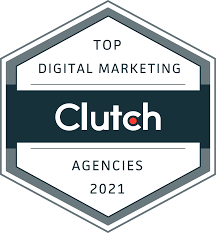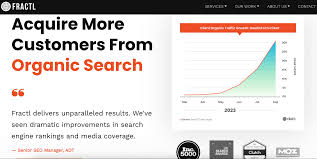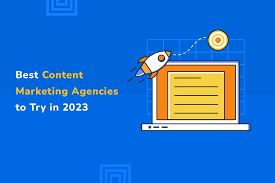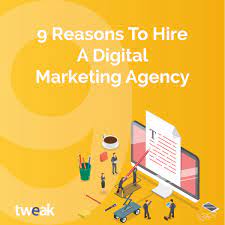The Role of SEO in Content Marketing Agencies
The Role of SEO in Content Marketing Agencies
Content marketing agencies play a crucial role in helping businesses create and distribute valuable content to attract and engage their target audience. However, to ensure that this content reaches its intended audience and drives results, search engine optimization (SEO) is essential.
What is SEO?
SEO is the practice of optimizing a website’s content and structure to improve its visibility and ranking on search engine results pages (SERPs). By incorporating SEO best practices into their strategies, content marketing agencies can help their clients’ content rank higher in search results, increasing organic traffic and brand visibility.
The Relationship Between SEO and Content Marketing
SEO and content marketing go hand in hand. While content marketing focuses on creating valuable and relevant content for the target audience, SEO ensures that this content is easily discoverable by search engines. By conducting keyword research, optimizing meta tags, improving site speed, and building high-quality backlinks, content marketing agencies can enhance the performance of their clients’ content.
Benefits of Integrating SEO into Content Marketing Strategies
Integrating SEO into content marketing strategies offers several benefits:
- Increased Visibility: Optimizing content for relevant keywords can improve its visibility in search results, making it easier for the target audience to find.
- Higher Rankings: By following SEO best practices, content has a better chance of ranking higher on SERPs, driving more organic traffic to the website.
- Better User Experience: SEO techniques such as optimizing site speed and mobile responsiveness contribute to a better user experience, leading to higher engagement and lower bounce rates.
- Measurable Results: Through tools like Google Analytics, agencies can track the performance of their clients’ content campaigns and make data-driven decisions to improve ROI.
In Conclusion
In today’s digital landscape, the synergy between SEO and content marketing is essential for achieving online success. Content marketing agencies that understand the importance of integrating SEO into their strategies are better positioned to help businesses reach their target audience effectively and drive meaningful results.
17 Frequently Asked Questions About SEO and Content Marketing Agencies
- What does a SEO agent do?
- What is SEO in content marketing?
- What are the 6 areas of content marketing?
- What is a content marketing agency?
- How does SEO work with content marketing?
- Does content marketing include SEO?
- What is SEO marketing agency?
- How much do agencies charge for content marketing?
- Do I need an SEO agency?
- How to use content marketing for SEO?
- How does content marketing impact SEO?
- What are the 4 pillars of content marketing?
- What are the 5 essential elements of a content marketing strategy?
- What is content marketing SEO?
- What is content marketing agency?
- Are SEO and content marketing the same?
- What does a content marketing agency do?
What does a SEO agent do?
A common question regarding content marketing agency SEO is, “What does an SEO agent do?” An SEO agent, also known as an SEO specialist or consultant, plays a crucial role in helping businesses improve their online visibility and ranking on search engine results pages. These professionals are responsible for conducting keyword research, optimizing website content, building quality backlinks, and implementing technical improvements to enhance a website’s search engine performance. By staying up-to-date with the latest algorithms and best practices, an SEO agent helps businesses attract more organic traffic, increase brand visibility, and ultimately drive valuable results through effective search engine optimization strategies.
What is SEO in content marketing?
SEO in content marketing refers to the strategic practice of optimising and enhancing digital content to improve its visibility and ranking on search engine results pages (SERPs). By incorporating SEO techniques such as keyword research, meta tag optimisation, and link building into content creation and distribution strategies, content marketers aim to make their content more discoverable by search engines like Google. This ensures that the content reaches a wider audience, drives organic traffic to websites, and ultimately helps businesses attract and engage their target customers effectively. In essence, SEO plays a vital role in maximising the impact and reach of content marketing efforts by making sure that valuable content is not only created but also easily found by those searching for relevant information online.
What are the 6 areas of content marketing?
In the realm of content marketing, there are six key areas that businesses should focus on to create successful strategies: content creation, content curation, content distribution, content promotion, content analysis, and content optimisation. Content creation involves developing original and engaging material tailored to the target audience. Content curation refers to sourcing and sharing relevant third-party content that adds value to the brand’s message. Content distribution ensures that the created content reaches the right channels and platforms for maximum visibility. Content promotion involves actively promoting the content through various marketing channels. Content analysis involves measuring and evaluating the performance of the content to inform future strategies. Lastly, content optimisation focuses on refining and improving existing content to enhance its effectiveness and reach. Mastering these six areas is crucial for a comprehensive and successful content marketing approach within a digital landscape.
What is a content marketing agency?
A content marketing agency is a specialised firm that focuses on creating and distributing valuable, relevant, and consistent content to attract and engage a target audience. These agencies work closely with businesses to develop content strategies that align with the brand’s goals and values. By leveraging various content formats such as blog posts, videos, infographics, and social media posts, a content marketing agency aims to drive organic traffic, increase brand awareness, and ultimately generate leads or conversions for their clients. Additionally, these agencies often incorporate search engine optimisation (SEO) techniques to ensure that the content reaches a wider audience by ranking higher in search engine results pages.
How does SEO work with content marketing?
SEO and content marketing work hand in hand to drive success in digital marketing strategies. SEO, or search engine optimisation, focuses on improving a website’s visibility and ranking on search engine results pages by implementing various techniques such as keyword research, meta tag optimisation, and link building. Content marketing, on the other hand, revolves around creating valuable and engaging content for the target audience. When combined effectively, SEO ensures that this content is easily discoverable by search engines, leading to increased visibility, higher rankings, and improved user experience. By integrating SEO into content marketing strategies, businesses can enhance their online presence and attract more organic traffic to their websites.
Does content marketing include SEO?
Yes, content marketing often includes SEO as an integral component of its strategy. While content marketing focuses on creating valuable and engaging content to attract and retain a target audience, SEO plays a crucial role in ensuring that this content is discoverable by search engines and ranks well in search results. By incorporating SEO best practices such as keyword research, meta tag optimization, and link building into their content strategies, content marketing agencies can enhance the visibility and performance of their clients’ content online. This synergy between content marketing and SEO helps businesses reach a wider audience, drive organic traffic to their websites, and ultimately achieve their digital marketing goals effectively.
What is SEO marketing agency?
An SEO marketing agency is a specialised firm that focuses on improving a company’s online visibility and search engine rankings through strategic marketing techniques. These agencies work closely with businesses to enhance their online presence by implementing SEO strategies such as keyword research, content optimisation, link building, and technical website improvements. By leveraging SEO practices, an SEO marketing agency helps businesses attract more organic traffic to their websites, increase brand awareness, and ultimately drive conversions. The primary goal of an SEO marketing agency is to help clients achieve higher visibility in search engine results pages (SERPs) and improve their overall digital marketing performance.
How much do agencies charge for content marketing?
When it comes to the cost of content marketing services provided by agencies, the pricing can vary significantly depending on various factors. Content marketing agencies typically offer a range of pricing models, such as hourly rates, project-based fees, or monthly retainers. The cost of content marketing services may also be influenced by the scope of work, the level of expertise required, the complexity of the project, and the agency’s reputation in the industry. It is advisable for businesses to request quotes from multiple agencies and compare their offerings to find a solution that aligns with their budget and goals effectively.
Do I need an SEO agency?
When considering whether to engage an SEO agency for your content marketing needs, it’s important to evaluate your specific goals and resources. While some businesses may have the expertise and capacity to manage their SEO efforts in-house, an SEO agency can provide specialised knowledge, experience, and resources to help you achieve optimal results. An SEO agency can offer tailored strategies, continuous monitoring and adjustments, and access to the latest industry trends and tools, ultimately saving you time and effort while maximising the effectiveness of your content marketing campaigns. By partnering with an SEO agency, you can benefit from their expertise in navigating the complexities of search engine algorithms and ensuring that your content reaches a wider audience and drives meaningful engagement.
How to use content marketing for SEO?
To effectively utilise content marketing for SEO, it is crucial to create high-quality, relevant content that resonates with your target audience while incorporating strategic SEO practices. Start by conducting keyword research to identify relevant search terms that your audience is using. Incorporate these keywords naturally into your content, including headings, meta tags, and body text. Focus on creating valuable and engaging content that addresses the needs and interests of your audience. Additionally, consider building backlinks from reputable sources to increase the authority of your content. By combining compelling content with SEO techniques, you can enhance your website’s visibility in search engine results and drive organic traffic to your site.
How does content marketing impact SEO?
Content marketing plays a significant role in influencing SEO outcomes by providing valuable, relevant, and engaging content that resonates with the target audience. High-quality content not only attracts users but also encourages them to stay longer on the website, reducing bounce rates and improving user engagement metrics. Search engines like Google reward websites that offer valuable content by ranking them higher in search results. Additionally, well-crafted content can earn backlinks from other reputable sites, which further boosts the website’s authority and credibility in the eyes of search engines. Therefore, an effective content marketing strategy can enhance SEO performance by driving organic traffic, improving visibility, and ultimately contributing to a stronger online presence for businesses.
What are the 4 pillars of content marketing?
In the realm of content marketing, the concept of the “4 pillars” serves as a foundational framework for crafting successful strategies. These pillars typically encompass creation, distribution, promotion, and analysis. The creation pillar involves developing high-quality and engaging content tailored to the target audience’s needs and interests. Distribution focuses on effectively disseminating this content through various channels to reach a wider audience. Promotion entails leveraging tactics such as social media, email marketing, and influencer partnerships to amplify content visibility. Lastly, analysis involves measuring key performance indicators and data insights to refine strategies and enhance future content initiatives. By adhering to these essential pillars, content marketing agencies can build robust campaigns that resonate with audiences and drive meaningful results.
What are the 5 essential elements of a content marketing strategy?
A successful content marketing strategy comprises five essential elements that work together to drive results for businesses. Firstly, defining clear goals and objectives is crucial to align content efforts with business outcomes. Secondly, understanding the target audience and creating valuable, relevant content tailored to their needs and preferences is key to engagement. Thirdly, consistent and strategic distribution across various channels ensures maximum reach and visibility. Fourthly, measuring performance through analytics and KPIs allows for continuous improvement based on data-driven insights. Lastly, regular evaluation and adaptation of the strategy based on results help maintain relevance and effectiveness in a dynamic digital landscape.
What is content marketing SEO?
Content marketing SEO refers to the strategic integration of search engine optimization techniques into content marketing strategies. It involves optimising content such as blog posts, articles, videos, and infographics to improve their visibility and ranking on search engine results pages (SERPs). By incorporating SEO best practices like keyword research, meta tag optimisation, and link building into content creation and distribution, content marketing SEO aims to attract organic traffic, enhance brand visibility, and drive engagement with the target audience. This synergy between content marketing and SEO is crucial for businesses looking to maximise the impact of their digital content and achieve sustainable online growth.
What is content marketing agency?
A content marketing agency is a specialised firm that helps businesses create and distribute valuable and relevant content to attract, engage, and retain their target audience. These agencies work closely with clients to develop tailored content strategies that align with the brand’s goals and objectives. By leveraging various content formats such as articles, blogs, videos, infographics, and more, a content marketing agency aims to enhance brand visibility, drive website traffic, and ultimately generate leads and conversions. Additionally, content marketing agencies often integrate search engine optimisation (SEO) practices into their strategies to ensure that the content ranks well on search engine results pages (SERPs) and reaches a wider audience organically.
Are SEO and content marketing the same?
In the realm of digital marketing, a commonly asked question is whether SEO and content marketing are synonymous. While they share common goals of enhancing online visibility and driving traffic, SEO and content marketing are not the same. SEO focuses on optimizing a website’s technical aspects and structure to improve its search engine rankings, while content marketing revolves around creating valuable and engaging content to attract and retain an audience. However, the two disciplines often work hand in hand, with SEO providing the framework for content to be discovered and appreciated by target audiences. Effective integration of both strategies is key to maximising online presence and achieving sustainable growth in today’s competitive digital landscape.
What does a content marketing agency do?
A content marketing agency specialises in creating and distributing valuable, relevant content to attract and engage a target audience. These agencies work closely with businesses to develop content strategies that align with their goals and resonate with their target market. From crafting compelling blog posts and social media campaigns to producing informative videos and whitepapers, a content marketing agency’s primary focus is on driving brand awareness, increasing website traffic, and ultimately generating leads or conversions for their clients. By leveraging search engine optimisation (SEO) techniques, content marketing agencies ensure that the content they create is not only engaging but also easily discoverable by search engines, maximising its reach and impact.









